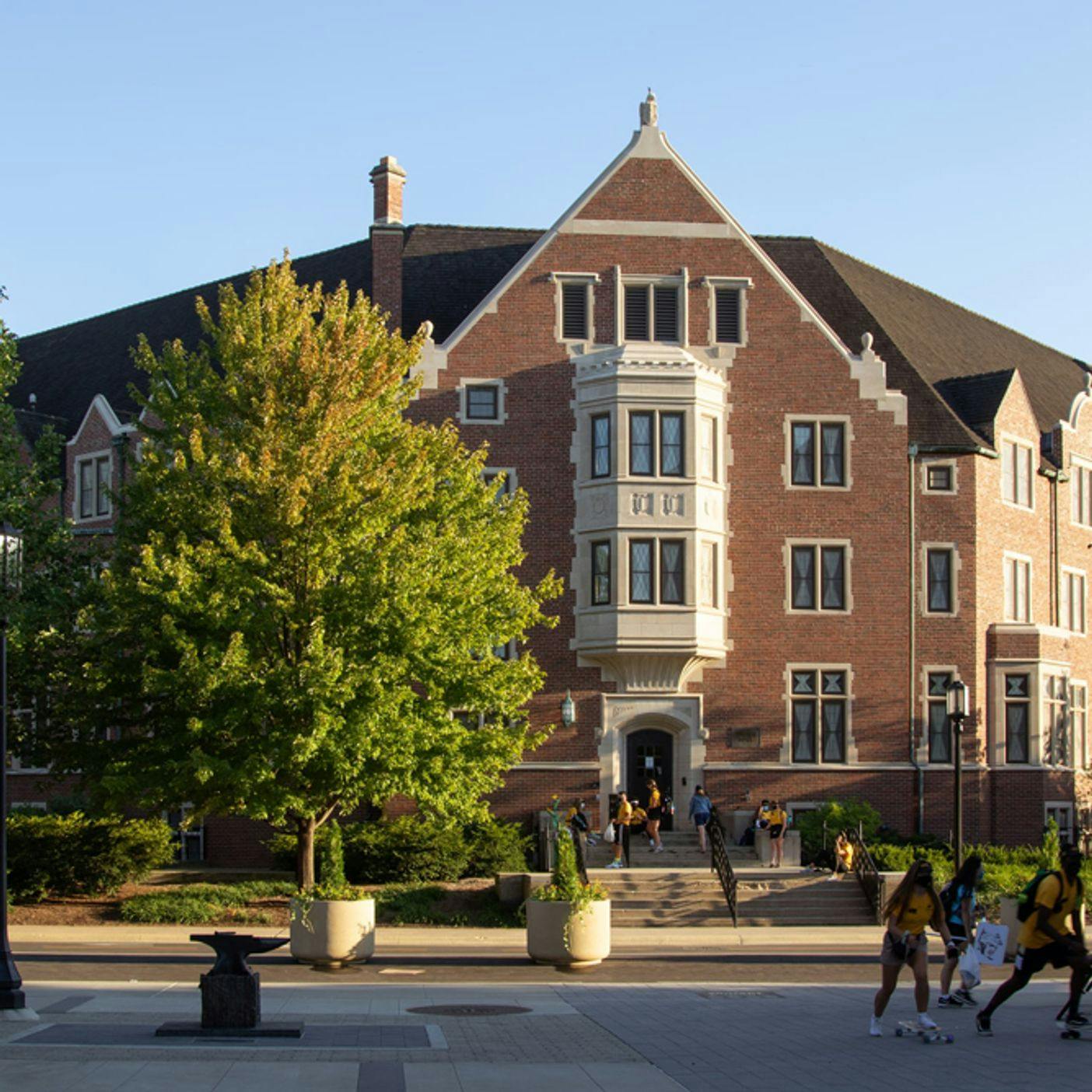Networks like Handshake have helped to revolutionize the campus recruitment scene.
They make it easier for students and businesses to connect, which helps students to get more real-world experience and businesses to find more top talent straight out of university or college.
These connections are invaluable for everyone involved. Students can go on to form long-term relationships with businesses, which helps with their future career prospects. Businesses reduce their time and cost to hire while also improving their brand image among younger audiences.
An employer’s brand image plays a huge role in campus recruitment. According to Harvard Business Review, the most important factor when it comes to millennials looking for jobs is people and cultural fit. This even comes above compensation and career potential. Getting the right image across to potential employees – even those who may go on to become employees long after they’ve graduated – is therefore crucial.
According to the same study, the majority of millennials hear about companies from friends. So the more people a company can connect with, the more organic reach they’ll receive through word-of-mouth, too. Word of mouth is one of the best forms of marketing, and it’s something that businesses really can’t put a price on. The better their brand image is, the more highly people will speak of them.
One of the ways campus recruitment can be made easier for companies is by using calendar sync. Calendar sync makes it an easier, faster process for them to connect with students and career advisors. The easier it is for them to do this, the more likely they will be to do so, creating more opportunities for everyone involved.
Connect students with career centers
When career advisors’ calendars are connected to a booking system, students can book meetings with advisors online. This way, they’ll always be able to get an appointment with the right person to get the advice they need.
Advisors, meanwhile, don’t need to worry about being double-booked as Cronofy ensures that once a meeting is booked with them, it’s pushed straight to their calendar to avoid any conflicts. They can also specify when they’re available to meet with students to avoid any appointments being booked outside of their working hours.
Connecting students with career centers early on in their college or university life helps them to decide on the right career path for them faster. This means they can be connected with the right people and businesses faster, getting their foot in the door before they’ve even graduated.
Handshake does this with their network of universities, students, and businesses. It works with universities such as Stanford, Princeton, UC-Berkeley and more, connecting students with counselors and businesses to make it easier for them to get a head start with their careers.
Connect students and businesses before it’s time to hire
When a student’s first contact with a business is during the hiring process, they’re less likely to know about the business and what the role involves.
When they’ve already built up a relationship with the organization, they’re better informed about what the role entails and what the organization's expectations are.
Businesses also have more of an idea of the kinds of talent an academic institution or a particular course can offer them.
Events such as guest lectures are a good way for businesses to begin to form relationships with future candidates. However, they can be difficult to organize – particularly around university schedules and the working day – meaning many businesses lose out on this opportunity.
Using calendar sync, events such as guest lectures can be organized around the speaker’s schedule, making it a more attractive prospect to businesses looking to improve their brand image.
The event can also be added to their schedule using a Smart Invite, which can be used to confirm their attendance and provide them with any additional information such as where the event is or how long it will take them to get there.
Another way that businesses can build relationships with students is with mentorship schemes. These help students to develop the skills they need in the working world – which many businesses feel students are lacking – while also helping team members within a business to build their leadership skills.
Internships and sandwich years are other ways for students to develop their skills in the real world. They’re also a good way for businesses to find the right candidates before offering them a permanent, full-time position. Students can schedule work around their study time, and sync their commitments to their calendar to avoid any other commitments conflicting with their studies or work.
Schedule interviews faster
Calendar sync – especially when it updates in real-time – makes it easier and faster for your customers to schedule interviews. Hiring managers, recruitment coordinators, and students can say goodbye to lengthy phone calls or emails.
Instead, hiring managers can connect their schedules to a tool like Real-Time Scheduling. Coordinators can then send an email booking link to students they’d like to interview. Students can book the interview at their own convenience, picking times that best suit them while also working around the hiring managers’ real-time availability.
It even works for complicated multi-part interviews which can be unnecessarily time-consuming to organize.
Allowing students to book their own interviews creates a candidate-first experience from the start. This helps to attract more candidates and therefore give businesses a wider talent pool to choose from. Because of this, they have a better chance of finding the right person for the role first time, meaning they spend less time and money on campus recruitment.
A more streamlined hiring process like this demonstrates a modern, employee-first working culture from the start. This not only helps with online reviews but makes people more interested in working with them because they know they’ll be treated well. The more complex or monotonous tasks companies automate, the easier it is for employees to focus on getting the work done that they were really hired to do.
When 520 hours per year per employee is lost to those kinds of tasks every year, the more that can be automated, the more productive employees can be.
When new employees have more time to get to grips with the job at hand – and their colleagues have more time to train them – they can progress faster, as can the business that hired them.
The same booking process could also be used to make it easier for students to schedule meetings with career advisors. Advisors generate the booking link then can send it to multiple students they’d like to meet with. Students can then cross-check their calendars before booking the appointment.
Conclusion
Calendar sync helps companies to create a more candidate-first hiring process. For students just entering the working world, this is one of the ways in which businesses can stand out from their competitors.
Companies can attract the best students right out of university, training them in their own way and helping them to get their foot in the door faster. Students will appreciate this opportunity and go on to develop their skills in a way that best suits the business’s – and their customers’ – needs.
For more ideas on how calendar sync could help your educational software, check out our educational use cases for calendar sync.

